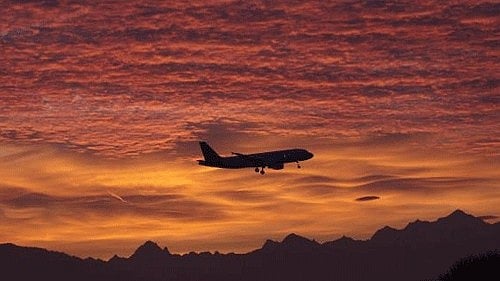
Representative image showing a plane.
Credit: Reuters File Photo
The recent incident of assault on IndiGo pilot has forced the airline to initiate the process of putting the "unruly" passenger on the no-fly list. Civil Aviation Minister Jyotiraditya Scindia too condemned the behaviour of the passenger as "unacceptable" and said it "will be dealt with strongly" in line with existing legal provisions.
In light of the recent incident, let's take a look at what airlines can do with such passengers and what constitutes "unruly" behaviour:
Here's how airlines can respond to incidents of unruly passengers:
As per the guidelines released by the government in 2017, the passenger should first be made aware if their behavior is breaking the law and that they could be arrested (on arrival at destination, or at any other airport where the aircraft commander may choose to land).
"Unruly" behaviour includes:
a) Consuming alcoholic beverages or drugs resulting in significant intoxication and unruly behaviour.
b) Smoking on an aircraft.
c) Failure to obey the instructions of the pilot-in-command.
d) Acting in a disruptive manner by: i) use of any threatening, abusive or insulting words towards a member of the crew or other passengers; ii) physically behaving in a threatening, abusive, insulting or disorderly manner towards a member of the crew or other passengers; iii) intentionally interfering with the performance of a crew member.
e) Endangering the safety of an aircraft and people aboard.
In case the pilots and crew feel the passenger's behaviour cannot be brought under control, airline’s central control, in consultation with pilot-in-command, will identify the alternate aerodrome for landing of aircraft as quickly as possible. "Upon landing of aircraft, pilot-in-command shall lodge FIR with security agency at aerodrome and hand over the unruly passenger to security agency," the guidelines states.
What are the categories of cases of unruly behaviour?
a) Level 1: Disruptive behavior (physical gestures, verbal harassment, unruly inebriation, etc.)
b) Level 2: Physically abusive behavior (pushing, kicking, hitting, grabbing or inappropriate touching or sexual harassment, etc.)
c) Level 3: Life-threatening behavior (damage to aircraft operating system, physical violence such as choking, eye gouging, murderous assault, attempted or actual breach of the flight crew compartment, etc.)
What happens after the incident?
Once the airline receives the complaint of unruly/disruptive behaviour by a passenger, then the airlines should first refer to an internal committee, which within 10 days (of the matter being referred to it) should decide whether the passenger in question falls in the category of 'unruly/disruptive passengers' and the level of unruliness.
This committee will also decide the period for which the passenger is to be barred from flying, the rules further said.
Pending decision of the internal committee, the airline may ban such unruly passenger from flying, which may not exceed a period of 10 days.
The decision of the internal committee shall be binding on the airline concerned. If committee fails to take a decision within ten days, the airline concerned can decide on the matter, exercising the powers of the committee.
All about no-fly list
Airlines must maintain a list/database of passengers under no-fly list and hand it over to the aviation regulator and other airlines.
Airlines have the option of barring the unruly passenger from taking flights to/from/within India for periods as indicated below.
a) Level 1 - upto three months.
b) Level 2 - upto six months.
c) Level 3 - for a minimum period of 2 years or more without limit.
d) Those identified as threats to national security will be barred till the time they continue to be perceived as 'national security risk' by the Ministry of Home Affairs.
For every subsequent offence, the person will be banned for twice the period of previous ban.
(With inputs from DGCA's 'Handling of unruly/disruptive passengers' guidelines released in 2017)
